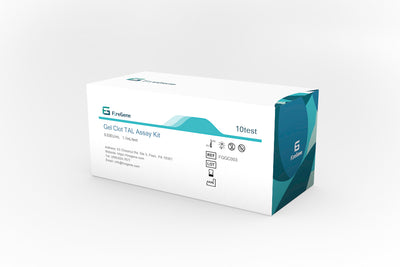Gel Clot Endotoxin Test Kit: Reliable Detection of Bacterial Endotoxins
April 28, 2025 | News | No Comments

# Gel Clot Endotoxin Test Kit: Reliable Detection of Bacterial Endotoxins
Introduction to Bacterial Endotoxins
Bacterial endotoxins, also known as lipopolysaccharides (LPS), are toxic components found in the outer membrane of Gram-negative bacteria. These substances can cause severe reactions in humans, including fever, septic shock, and even death when introduced into the bloodstream. The detection and quantification of endotoxins is crucial in pharmaceutical manufacturing, medical device production, and water quality testing.
What is the Gel Clot Endotoxin Test Kit?
The Gel Clot Endotoxin Test Kit is a widely used method for detecting bacterial endotoxins based on the clotting reaction of horseshoe crab (Limulus amebocyte lysate or LAL) blood. This kit provides a simple, reliable, and cost-effective solution for endotoxin testing in various industries.
Key Features of the Gel Clot Method
- High sensitivity to endotoxins
- Clear visual endpoint (gel formation)
- No requirement for specialized equipment
- Cost-effective compared to other methods
- Validated for compliance with pharmacopeial standards
Keyword: Gel Clot Endotoxin Test Kit
How the Gel Clot Test Works
The test principle relies on the natural clotting mechanism of horseshoe crab blood. When endotoxins come into contact with the LAL reagent in the test kit, they trigger a cascade of enzymatic reactions that result in the formation of a gel clot. The presence or absence of this clot indicates whether endotoxins are present in the sample above a specified threshold.
Test Procedure Overview
- Prepare test samples and controls
- Mix samples with LAL reagent
- Incubate at specified temperature (typically 37°C)
- Observe for clot formation after incubation period
- Interpret results based on presence/absence of gel
Applications of Gel Clot Endotoxin Testing
The Gel Clot Endotoxin Test Kit has numerous applications across various industries:
Pharmaceutical Industry
Used for testing parenteral drugs, vaccines, and medical devices that come into contact with blood or cerebrospinal fluid.
Medical Device Manufacturing
Essential for ensuring the safety of implants, surgical instruments, and other medical equipment.
Water Quality Control
Applied in testing purified water, water for injection (WFI), and dialysis water.
Biotechnology
Used in quality control of biological products and cell culture media.
Advantages Over Other Endotoxin Detection Methods
While there are several methods for endotoxin detection (chromogenic, turbidimetric, and recombinant), the gel clot method offers distinct advantages:
| Feature | Gel Clot | Other Methods |
|---|---|---|
| Equipment Requirements | Minimal (water bath) | Spectrophotometer needed |
| Cost | Lower | Higher |
| Ease of Use | Simple visual readout | Requires technical expertise |
| Quantification | Semi-quantitative | Fully quantitative |